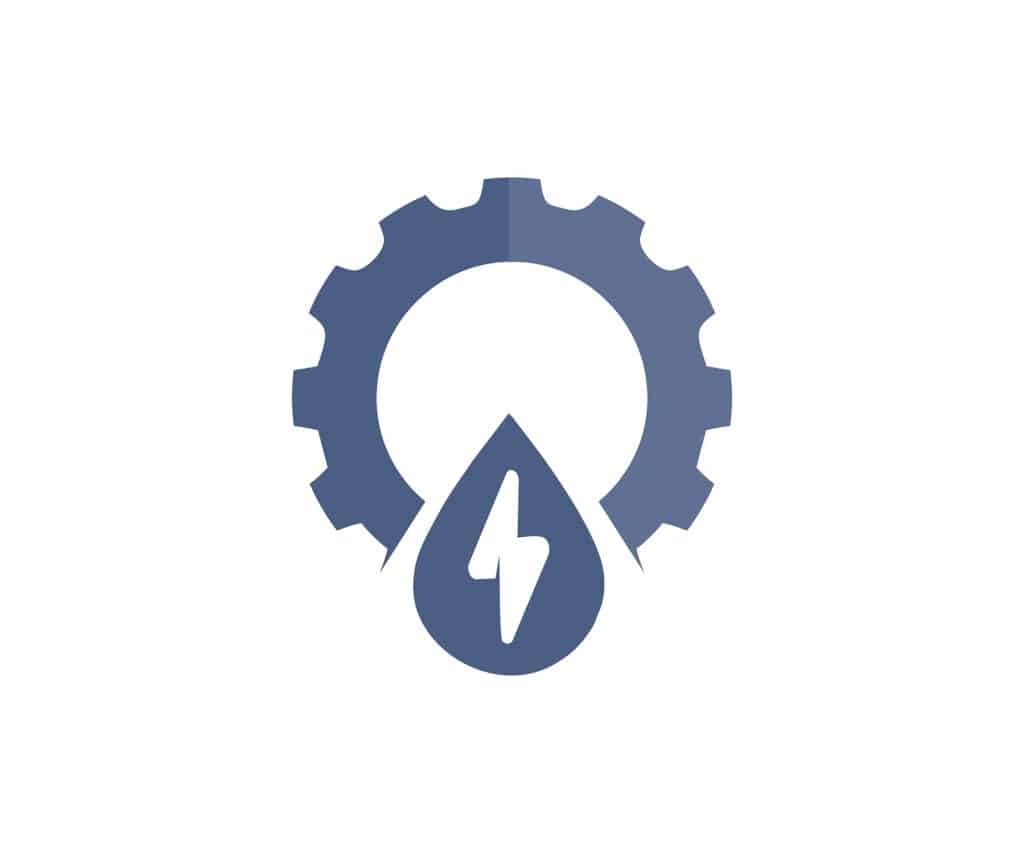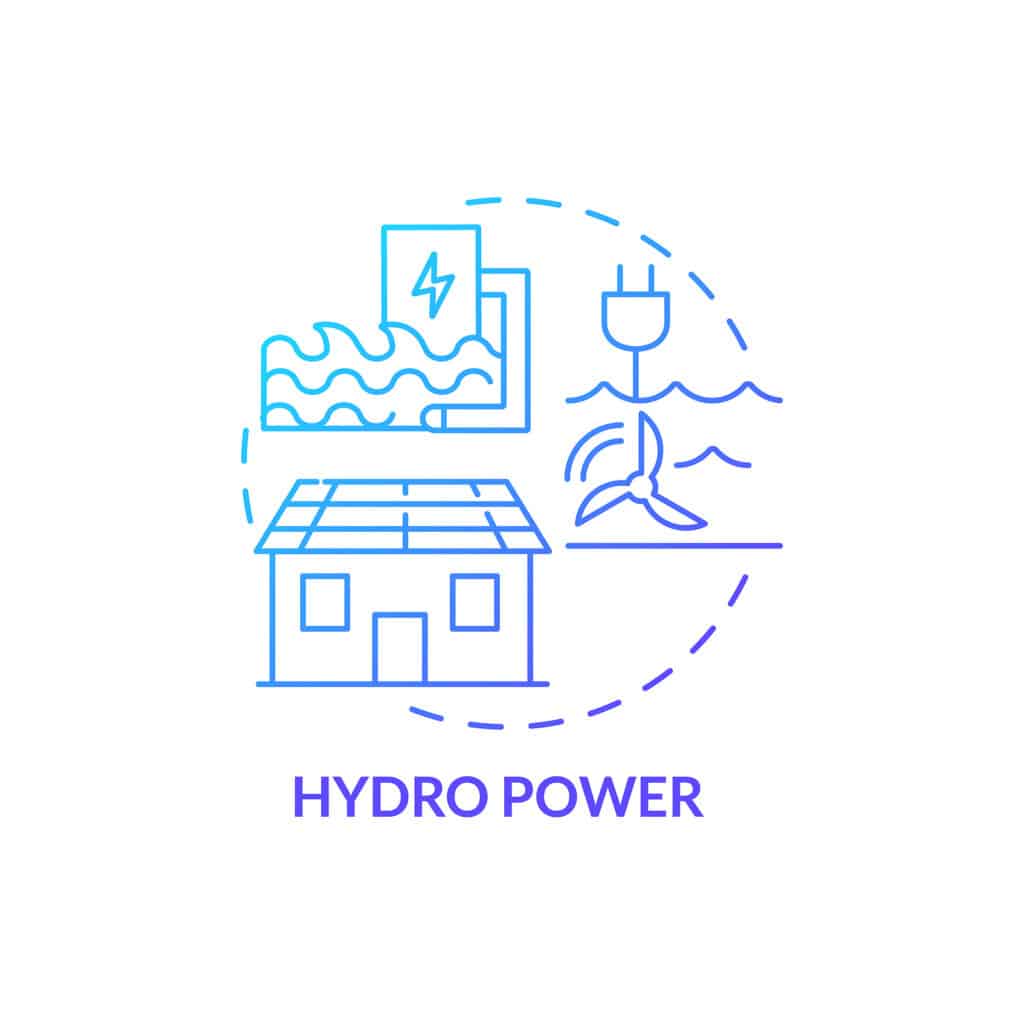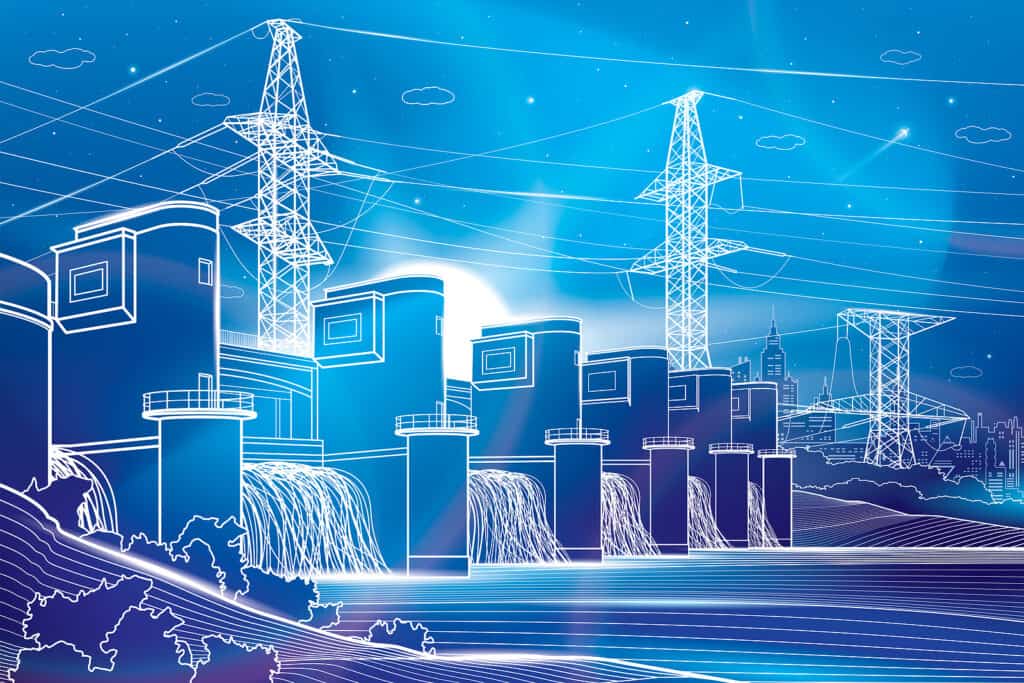Going Green with Hydro Power: A Sustainable Lifestyle with Hydro Power
In this article, we will explore the benefits of hydro power and how Green Life Hydro Power is making it easier for people to make the switch to renewable energy.
In today's world, as we continue to face the consequences of climate change, more and more people are turning towards a sustainable lifestyle. One of the ways we can reduce our carbon footprint is by utilizing renewable energy sources. Hydro power is one of the most reliable, efficient and sustainable sources of renewable energy available.
What is HydroPower and is Hydropower Renewable?
Hydro power, often referred to as hydroelectric power, is a prominent and environmentally sustainable method of generating electricity by harnessing the kinetic energy produced from the natural flow of water. This renewable energy source has gained widespread adoption and global significance, contributing to over 70% of the total renewable energy production worldwide.
The process of hydro power generation revolves around the conversion of the potential energy stored in large bodies of water, such as rivers, lakes, or reservoirs, into kinetic energy as the water flows downstream under the influence of gravity. To accomplish this, hydroelectric power plants are strategically positioned at suitable locations along water bodies to maximize energy extraction.

The Benefits of Hydro Power
Environmentally Clean and Renewable
One of the most significant advantages of hydro power is its eco-friendly nature. Unlike fossil fuels, hydro power does not emit harmful greenhouse gases or contribute to air pollution. It relies on the natural flow of water, which is a renewable resource replenished by natural processes such as precipitation and snowmelt. This characteristic makes hydro power a crucial player in the global efforts to combat climate change and reduce carbon footprints.
Cost-Effectiveness
Hydro power stands out as a cost-effective form of renewable energy. While the initial investment in building hydroelectric infrastructure might be substantial, the operational costs of generating electricity are relatively low. Once the hydro power plant is constructed, the ongoing expenses become manageable, making it economically attractive in the long run. This cost-effectiveness is particularly evident when compared to some other renewable energy sources that might require continuous maintenance and higher operational expenditures.
Reliability and Base Load Power
Hydro power boasts exceptional reliability as a source of electricity. Unlike solar and wind power, which are dependent on weather conditions and can fluctuate throughout the day, hydro power provides a steady and continuous supply of electricity. Due to its reliability, hydro power is often referred to as “base load” power, meaning it can consistently meet the minimum electricity demand, serving as a stable backbone for power grids.
Versatility in Power Generation
Hydro power plants offer a high degree of flexibility in electricity generation. Operators can quickly adjust the amount of electricity produced by controlling water flow through the turbines. This adaptability allows hydro power to respond efficiently to fluctuations in energy demand, ensuring a stable and reliable power supply even during periods of peak consumption.
Flood Control and Water Management
Hydroelectric dams play a vital role in water management, particularly in regions prone to flooding. By regulating water flow, these dams can mitigate the risk of downstream flooding during heavy rainfall or melting snow periods. This flood control function not only protects communities and valuable infrastructures but also ensures a more efficient use of water resources for various purposes like irrigation, domestic supply, and industrial needs.
Green Life Hydro Power
Green Life Hydro Power is a pioneering company committed to democratizing renewable energy and bringing its benefits within reach of every individual, business, and community. With a primary focus on hydro power, they specialize in providing comprehensive services encompassing the installation and upkeep of hydroelectric systems.
Their expertise extends to a diverse range of clientele, catering to households, commercial enterprises, and entire communities seeking to harness the power of flowing water for sustainable electricity generation. The company offers a holistic approach to the implementation of hydro power systems, starting with meticulous feasibility studies that assess the suitability and potential of the site for harnessing hydro energy.
Green Life Hydro Power takes pride in their cutting-edge design and installation capabilities, customizing solutions that maximize energy extraction while adhering to the specific requirements and unique features of each location. Their team of skilled engineers and technicians collaborates closely with clients to ensure seamless integration of hydro power systems into existing infrastructures or new construction projects.
Feasibility Studies
Green Life Hydro Power places great emphasis on conducting meticulous and comprehensive feasibility studies to ascertain the viability of implementing hydro power systems in specific locations. Recognizing the critical role these studies play in determining the feasibility of such projects, the company employs a team of seasoned experts who meticulously analyze a multitude of factors.
Water Source Assessment: A fundamental aspect of their feasibility studies involves a thorough assessment of the available water sources in the area. They evaluate the characteristics of rivers, streams, lakes, or reservoirs to determine their sustainability and capacity for consistent water flow, which is vital for the continuous operation of a hydro power system.
Flow Rate Analysis: Green Life Hydro Power meticulously examines the flow rate of the water source. This analysis gauges the volume of water that passes through the site within a given timeframe, providing valuable insights into the potential energy that can be harnessed for electricity generation. Understanding the flow rate is crucial for estimating the energy output and the system's overall efficiency.
Design and Installation
After completing the meticulous feasibility study, Green Life Hydro Power moves forward with the crucial phases of design and installation, leveraging cutting-edge technology and expertise to create efficient and reliable hydro power systems tailored to the specific needs of their clients.
Customized Design: Green Life Hydro Power's team of experienced engineers and designers utilizes the data gathered during the feasibility study to create customized hydro power system designs. They carefully consider the site's unique characteristics, including water source conditions, flow rates, elevation changes, and environmental factors. By tailoring the design to the site's specific attributes, they maximize the system's energy output and overall performance.
State-of-the-Art Technology: In line with their commitment to delivering high-quality and innovative solutions, Green Life Hydro Power employs the latest advancements in hydro power technology and equipment. This includes state-of-the-art turbines, generators, control systems, and monitoring devices. By incorporating cutting-edge technology, they ensure that the hydro power system operates at peak efficiency while maintaining reliability and ease of maintenance.
Ongoing Maintenance
At Green Life Hydro Power, the commitment to their clients extends far beyond the initial installation phase. They recognize the critical importance of ongoing maintenance and support to ensure the long-term efficiency and reliability of their hydro power systems. As such, they offer comprehensive maintenance services, incorporating regular inspections, timely repairs, and client training to maximize the benefits of their hydropower installations.
Regular Inspections: Green Life Hydro Power implements a proactive approach to maintenance by conducting scheduled and thorough inspections of their hydro power systems. Their expert technicians and engineers meticulously examine all components, including turbines, generators, control systems, and electrical connections.
Through these inspections, they identify any signs of wear, malfunctions, or potential issues, enabling them to address concerns promptly and prevent minor problems from escalating into major failures.

Green Life Hydro Power: A Company Dedicated to Sustainability
Green Life Hydro Power is not merely a company focused on hydro power systems; it is an organization deeply committed to sustainability and environmental impact. With a strong dedication to green practices and responsible operations, here are some key aspects that exemplify Green Life Hydro Power as a company:
Commitment to Sustainability
Sustainability is at the core of Green Life Hydro Power's mission. Throughout their business operations, they prioritize sustainable materials and practices to minimize their ecological footprint. From the selection of eco-friendly components to waste reduction strategies, they strive to embody sustainability in every aspect of their installations and ongoing services. Additionally, they actively work with their clients to promote sustainable practices in homes and businesses, fostering a broader culture of environmental responsibility.
Experienced Team
Green Life Hydro Power boasts a highly skilled and experienced team of professionals who are passionate about providing top-notch service to their clients. Their team comprises engineers, technicians, and project managers with extensive knowledge and expertise in the renewable energy industry. To ensure their team remains at the forefront of the industry, Green Life Hydro Power invests in ongoing training and development programs, ensuring that their staff stays up-to-date with the latest technologies and best practices.
Customized Solutions
Recognizing the uniqueness of each client's energy needs, Green Life Hydro Power offers tailor-made solutions that address specific requirements. They take a personalized approach, considering factors like energy consumption patterns, budget constraints, and location characteristics to design and implement systems that maximize energy efficiency and meet clients' distinct needs.
Community Outreach
Green Life Hydro Power goes beyond providing renewable energy solutions for individual clients; they actively engage with communities to create a positive impact. Through collaborations with local organizations and government agencies, they promote sustainable practices and raise awareness about the benefits of renewable energy adoption. Their community outreach initiatives include workshops and educational resources that empower people to embrace clean energy solutions in their homes and businesses.
Customer Service
Customer satisfaction is of paramount importance to Green Life Hydro Power. Recognizing that the decision to switch to renewable energy is significant, they prioritize exceptional customer service and support throughout the entire process. Their dedicated team works closely with clients to ensure a seamless and stress-free transition to renewable energy. Post-installation, they provide ongoing maintenance and support to guarantee that clients' systems operate at optimal capacity, thus delivering on their commitment to customer satisfaction.
FAQs for Going Green with Hydro Power
1. What is hydro power, and how does it work?
Hydro power, also known as hydroelectric power, is a renewable energy source that harnesses the kinetic energy of flowing water to generate electricity. Hydro power plants use dams or similar structures to control the flow of water, which drives turbines connected to generators, converting the water's energy into electrical power.
2. Why should I consider going green with hydro power?
Choosing hydro power as your energy source offers numerous benefits. It is clean, renewable, and produces no greenhouse gas emissions, contributing to reduced carbon footprints and environmental conservation. Hydro power systems can provide reliable and continuous electricity, making them a sustainable and eco-friendly alternative to fossil fuels.
3. Disadvantages of Hydropower?
While hydropower is a renewable energy source with numerous benefits, it is not without its disadvantages. One major concern is the environmental impact caused by the construction of large dams and reservoirs, which can lead to habitat destruction and alteration of water ecosystems. Additionally, the migration patterns of fish can be disrupted, affecting fish populations and biodiversity. Moreover, in drought-prone regions, reduced water flow can impact energy production, leading to fluctuations in electricity generation.
4. Solutions to Hydropower Problems?
To address the environmental and social issues associated with hydropower, there are several potential solutions. First, careful site selection and environmental impact assessments can help mitigate the negative effects of dam construction. Fish ladders and bypass systems can be implemented to aid fish migration and preserve aquatic ecosystems. Additionally, advancements in turbine technology can allow for fish-friendly designs, reducing the impact on aquatic life. Furthermore, a balanced approach to hydropower planning, considering water management and environmental conservation, can help ensure the sustainability of this energy source.
5. Is Hydropower Sustainable or Unsustainable?
Hydropower is generally considered a sustainable form of renewable energy. It relies on the continuous cycle of water, which replenishes through natural processes like rainfall and snowmelt. As long as proper environmental regulations and sustainable practices are adhered to during dam construction and operation, hydropower can maintain a low impact on the environment and contribute significantly to reducing greenhouse gas emissions.
However, unsustainably planned projects can have adverse effects on ecosystems, leading to long-term environmental and social consequences. By adopting responsible management practices, hydropower can continue to be a sustainable energy solution that plays a crucial role in the global transition to greener energy systems.
6. Can I use hydro power as a backup energy source?
Yes, hydro power can be an excellent backup energy source, especially in areas prone to power outages. Since hydro power can produce electricity continuously, it can act as a reliable backup during times of grid failure or high energy demand.
7. Will I be able to sell excess electricity back to the grid?
In some regions, it is possible to sell excess electricity generated by your hydro power system back to the grid. This process is known as net metering or feed-in-tariffs, and Green Life Hydro Power can provide guidance on local regulations and incentives.
8. How does hydro power impact the environment and local ecosystems?
Hydro power, when properly managed, has minimal impact on the environment and local ecosystems. Green Life Hydro Power conducts comprehensive environmental assessments to ensure that their installations adhere to sustainable practices and mitigate any potential negative effects on the surroundings.
9. Is hydro power cost-effective in the long run?
While the initial investment in a hydro power system can be significant, it becomes cost-effective in the long run due to low operational costs and continuous electricity generation. Green Life Hydro Power's customized solutions aim to maximize efficiency and minimize long-term expenses.
10. How do I switch to hydro power?
To switch to hydro power, contact Green Life Hydro Power to begin the process. They will guide you through every step, from feasibility studies and design to installation and ongoing maintenance, making the transition to green energy smooth and hassle-free.
Conclusion
Green Life Hydro Power is more than just a company that provides hydropower systems. They are a company dedicated to sustainability and making a positive impact on the environment. Their commitment to sustainability, experienced team, customized solutions, community outreach, and customer service set them apart as a leader in the renewable energy industry. By choosing Green Life Hydro Power, customers can rest assured that they are making a responsible choice for the environment and their own energy needs.
Sources
- International Hydropower Association, https://www.hydropower.org/what-is-hydropower
- U.S. Energy Information Administration, https://www.eia.gov/energyexplained/hydropower/
- Green Life Hydro Power, https://greenlifehydro.com/

